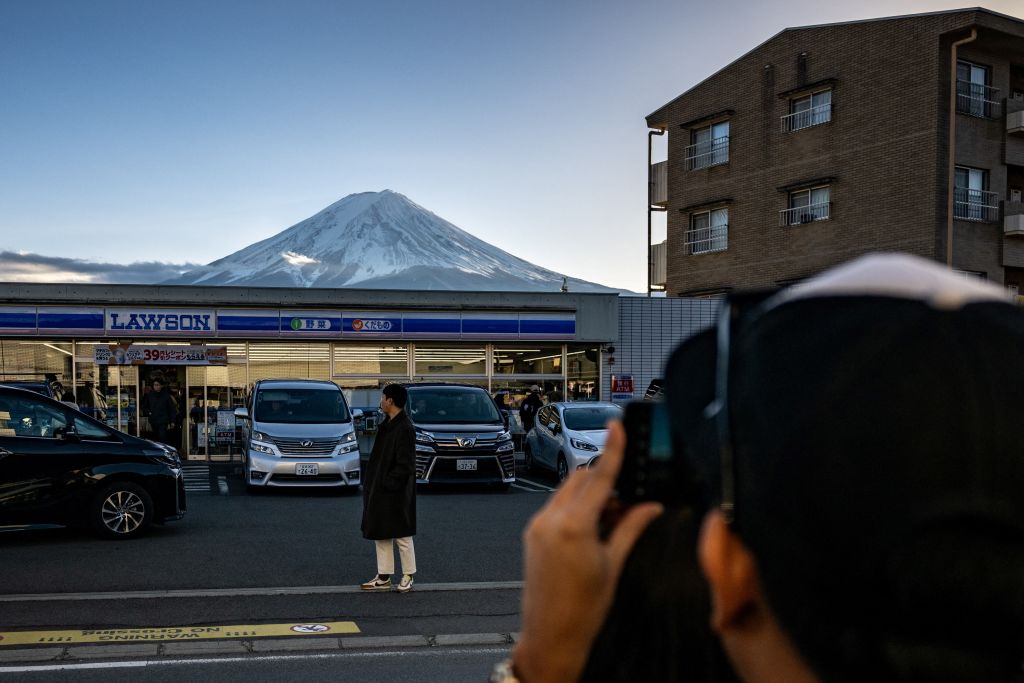
For months, Fujikawaguchiko, a Japanese resort town, has been swarmed with tourists eager to soak in the views of Mount Fuji, the country’s tallest mountain. The visitors have also taken a particular interest in one specific parking lot, which offers a picturesque view of the famed volcano in the background of a convenience store.
As the spot surged in popularity after earning a reputation on social media for being “very Japanese,” a local official told AFP, throngs of tourists have wreaked havoc, sometimes parking their cars without permission, leaving litter behind, and even climbing onto the roof of a nearby dental clinic in hopes of a better vantage point for the perfect shot.
Now, residents of Fujikawaguchiko are taking matters into their own hands, armed with plans to install a big barrier to block the view of the mountain. As early as next week, construction will begin for a mesh net measuring 2.5 meters (8 feet) high and 20 meters (22 yards) long.
“It’s regrettable we have to do this, because of some tourists who can’t respect rules,” the official said, adding that the screen will stay in place until the situation eases.
The announcement comes as Japan, which was already grappling with overtourism before the pandemic, is increasingly desperate to rein in rowdy visitors amid record tourism numbers. In March, monthly visitors crossed the three million mark for the first time, while tourist expenditure in the first quarter of 2024 also set a new record at 1.75 trillion yen (over $11 billion).
Last month, Kyoto authorities banned visitors from walking around the famed narrow alleyways of its geisha district in Gion, after tourists were reported photographing and touching the kimonos of traditional entertainers despite signs warning them to refrain from doing so.
And earlier this year, Yamanashi, the prefecture where many hikers begin their ascent of Mount Fuji announced that they would start charging ¥2,000 ($13) entry fee for those climbing the mountain—an attempt to curb congestion on the trails.
Across the world, the revival of tourism has helped give a massive boost to local economies, but also brought headaches to local communities. This week, Venice rolled out an experimental policy to charge day visitors a fee to access the historic city center, and the Indonesian island of Bali started imposing a tourist tax at the start of this year.
More Must-Reads from TIME
- Donald Trump Is TIME's 2024 Person of the Year
- Why We Chose Trump as Person of the Year
- Is Intermittent Fasting Good or Bad for You?
- The 100 Must-Read Books of 2024
- The 20 Best Christmas TV Episodes
- Column: If Optimism Feels Ridiculous Now, Try Hope
- The Future of Climate Action Is Trade Policy
- Merle Bombardieri Is Helping People Make the Baby Decision
Contact us at letters@time.com